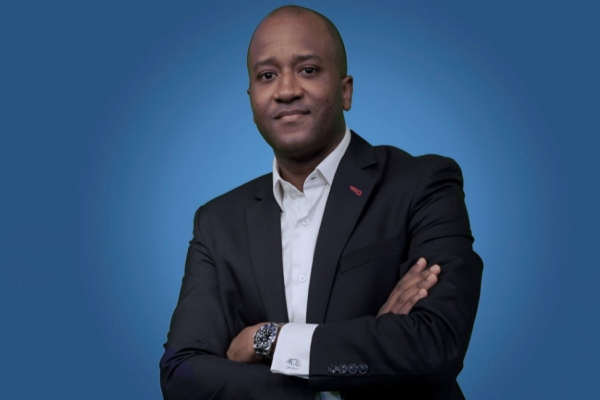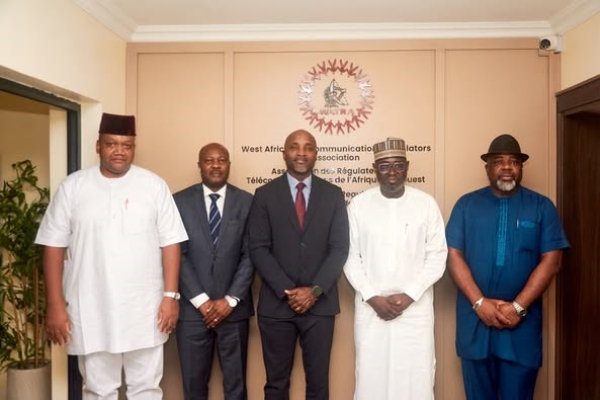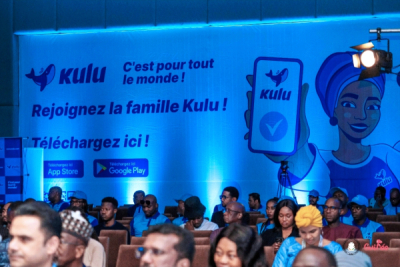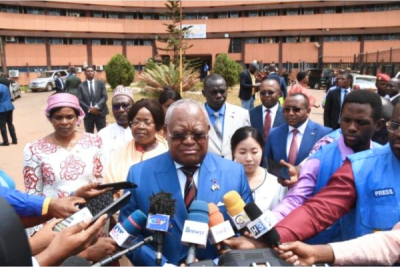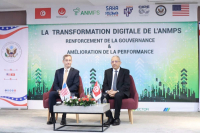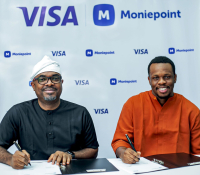He is an expert in fintech, e-commerce, and software development. Leveraging his understanding of Asian and African markets, he helps merchants achieve significant growth.
Eric Ouedraogo (photo) is an Ivorian computer scientist and tech entrepreneur. He founded Trustineo International, a company specializing in international trade, in 2018.
Based in Singapore, Trustineo International aims to connect agricultural producers with end buyers by facilitating the entry and establishment of Singaporean, Asian, and European businesses and investors in Africa, while also creating similar opportunities for African players in the global market.
Trustineo International offers a new way of doing business with Africa, emphasizing a more ethical and secure approach. The company has developed an innovative e-commerce platform that automates transactions and manages all stages of commodity trading. This includes electronic contract signing, real-time tracking of various stages in the supply chain, and centralized access to certificates, documents, and transaction histories.
Eric Ouedraogo holds a master’s degree in computer engineering, earned in 2004 from the École Nationale Supérieure d’Ingénieurs Sud Alsace (ENSISA) in France. After his studies, he worked as a developer for several companies before joining Société Générale in 2008. At Société Générale, he worked as an application support analyst in the commodities market and also managed client relations.
By Melchior Koba,
Editing by Sèna D. B. de Sodji
The Caribbean Telecommunications Union (CTU), led by Secretary-General Rodney Taylor, recently visited the Abuja Secretariat of the West Africa Telecommunications Regulators Assembly (WATRA) to discuss strengthening partnerships and exchanging best practices in telecommunications and ICT regulation between the Caribbean and West Africa.
The meeting, announced on January 23, addressed shared challenges, opportunities, and strategies to leverage ICT for economic and social development. It also emphasized strengthening regional connectivity through operator agreements and improved roaming regulations.
The partnership is poised to transform regulatory practices, spur innovation, and promote significant growth in the telecommunications and ICT sectors.
The Guinean government prioritizes financial inclusion. To this end, several initiatives are underway to expand access to digital financial services.
Guinean fintech company Digital Wallet-Guinée (Diwalgi S.A.) launched a new electronic money solution, "Kulu-Guinée," on Friday, January 24. The launch, attended by Guinean government officials, marks a significant step forward in the country's efforts to digitize its economy.
"Nearly 60% of the adult Guinean population still lacks access to formal financial services. This situation exposes a large portion of our citizens, particularly merchants and informal workers, to significant risks. Kulu represents an innovative solution that not only promotes financial inclusion but also ensures transaction security while helping integrate our citizens into the formal economy," said Rose Pola Pricemou, Minister of Posts, Telecommunications, and the Digital Economy.
The Kulu-Guinée platform offers various services, including secure money transfers using a QR code, a phone number, or a unique Kulu identifier. It also provides payment options for everyday needs, such as shopping, transportation, hairdressing or dining services, and even salary payments.
This private initiative aligns with the government's ongoing efforts to accelerate the country's digital transformation, notably through the Simandou 2040 Strategic Plan, which positions digital technology as a key driver of economic modernization.
The platform is expected to strengthen digital financial inclusion, provide a safer and more convenient payment solution, and facilitate the integration of Guineans—particularly informal workers—into the formal economy.
By Samira Njoya,
Editing by Sèna D. B. de Sodji
Specializing in human ressource management, the Nigerian startup has secured funding in multiple rounds to fuel its expansion. The company also operates in Ghana and Kenya.
SeamlessHR is a human resource management software designed for African businesses. It automates manual tasks and centralizes employee data management, reducing the risk of errors. Based in Ikeja, Nigeria, the startup was founded in 2018 by Deji Lana and Emmanuel Okeleji. On Wednesday, January 22, it announced the completion of a $9 million funding round to support its growth in Africa.
The solution offers a range of integrated modules to optimize various aspects of HR management. It provides insights into employee performance and enables precise calculations for generating secure reports. One feature helps manage and monitor payments as well as regulatory compliance.
The “Recruitment” function optimizes the hiring process through an applicant tracking system, helping attract and select top talent. SeamlessHR also includes performance and time management features, and allows employees early access to salaries and long-term loan options.
The startup claims 2,000 client companies worldwide and has physical offices in Nigeria, Ghana, and Kenya. “Over the last 5 years, we have expanded to become the dominant HR and Payroll Software for medium to large enterprises in Africa,” said Emmanuel Okeleji.
By Adoni Conrad Quenum,
Editing by Feriol Bewa
Like many African countries, Cameroon is working to incorporate information and communication technologies (ICT) into its public services to improve its administration. This transition relies heavily on training government employees to modernize their administrative practices and effectively address the challenges of the digital age.
Cameroon will begin the construction of four "smart campuses" in Yaoundé, within the next five months, the government said last Monday. The project, a partnership with the Korean International Cooperation Agency (KOICA), is part of the government's digital transformation strategy to modernize public administration.
"The four smart campuses will accelerate the awareness and training of young Cameroonians," said Joseph Le (photo, center), Minister of Public Service and Administrative Reform, at the first session of the project's Steering Committee. "KOICA has shared the plans for these campuses with us, and construction is expected to begin simultaneously at all four sites by June at the latest. This timeline aims for the campuses to be operational within 24 months."
The $8 million project aims to promote e-governance and train current and future public servants in the use of information and communication technologies (ICT). The campuses will be built at the National School of Administration and Judiciary (ENAM), the National School of Posts, Telecommunications, and Information and Communication Technologies (SUP'PTIC), the Higher Institute of Public Management (ISMP), and the Ministry of Public Service.
Cameroon currently ranks 155th out of 193 countries on the United Nations e-Government Development Index, with a score of 0.4294, a drop of 14 places from 2022. By modernizing its administration and enhancing the skills of younger generations, the government aims to build a more efficient and resilient public administration.
Samira Njoya
A passionate entrepreneur, she drives innovation across diverse sectors, including legal technology and sustainable tourism. She excels at building businesses that create a positive and lasting societal and environmental impact.
Norchen Mezni (photo) is a Tunisian entrepreneur known for her innovation and diverse ventures. She founded E-Tafakna, a startup transforming the legal landscape in the Middle East and North Africa (MENA) through technology.
Launched in 2022, E-Tafakna offers a digital platform that allows users to create, manage, collaborate on, sign, and send contracts online. With its mobile app, users can track the status of their contracts in real time and see who has viewed, accepted, rejected, revised, or signed them. The startup’s main goal is to make legal services affordable, accessible, and easy to use for startups, small and medium-sized enterprises (SMEs), freelancers, and individuals.
E-Tafakna also features innovative artificial intelligence, Elyssa AI, which meticulously analyzes every contract clause. This AI identifies risks, provides clear explanations, and offers recommendations to enhance compliance and contract robustness.
Beyond E-Tafakna, Norchen Mezni founded She! Ready to Wear, a premium women’s fashion label, in 2018. In 2019, she launched My Sweet Retreat, a platform focused on wellness tourism and personal development in Tunisia. She also serves as the CEO of Bohemian House of Flower, a business specializing in flower sales.
A graduate of South Mediterranean University, she earned her master’s degree in marketing in 2014. Her professional journey began two years earlier as an intern at Aon Tunisia, an insurance company.
In 2024, Norchen Mezni won Tunisia’s National Innovation Competition, and E-Tafakna was ranked among the 20 most promising startups by Tunisia Managers Magazine. That same year, she also won the MENA Region Innovating Justice Challenge, organized by HiiL (The Hague Institute for Innovation of Law).
By Melchior Koba,
Editing by Sèna D. B. de Sodji
Healthcare in Tunisia prioritizes efficiency and transparency. To meet the evolving needs of its population and enhance service delivery, the country has fully embraced digital transformation within the healthcare sector.
Tunisian Health Minister Mustapha Ferjani (photo, right) on Wednesday inaugurated a digital platform for managing medicines and health products, a significant step in the country's pharmaceutical sector digital transformation.
Developed by the National Agency for Medicines and Health Products (ANMPS), the platform aims to streamline administrative processes, particularly for issuing marketing authorizations (AMMs) and promotional licenses. It will also improve medicine traceability and provide citizens with online access to administrative services.
“This initiative will enable Tunisia to join the ranks of developed countries that rely on the pharmaceutical industry and the export of medicines,” stated Ferjani. He also highlighted that this innovation will help improve Tunisia’s ranking in global health standards by targeting the GBT3 level established by the World Health Organization (WHO).
The digital platform is designed to simplify and accelerate administrative processes, particularly for issuing marketing authorizations (AMMs) for medicines and promotional licenses. It will also enhance the traceability of medicines while making administrative services accessible online to citizens.
The project, carried out by a team of over 100 Tunisian experts with support from the United States, is part of a broader digitization program aimed at modernizing several strategic sectors in Tunisia. These efforts have already elevated Tunisia to the top spot in North Africa and third place on the continent for e-government, according to the UN’s “E-Government Survey 2024: Accelerating Digital Transformation for Sustainable Development.” With an online service development index of 0.6935 out of 1, Tunisia significantly surpasses the African average of 0.4247.
In addition to modernizing pharmaceutical administration, this initiative aims to enhance transparency, attract investment, and improve interconnectivity between government departments. With this advancement, Tunisia reaffirms its role as a regional leader in digital transformation, strengthens its healthcare sovereignty, and aligns with global best practices.
By Samira Njoya,
Editing by Sèna D. B. de Sodji
African fintech Moniepoint has received investment from Visa. This partnership, announced on January 23, aims to expand financial access and foster economic growth across the continent.
The collaboration will leverage Visa’s expertise in global payments and Moniepoint’s deep understanding of African businesses to enhance payment infrastructure and support SMEs.
This partnership underscores a shared commitment to advancing digital payments and empowering Africa’s economic future.
He is a venture capital investor with over 25 years of experience in executive and management roles. His focus is on investing in technology companies based in Africa and the Middle East.
Ahmed El Alfi (photo) is an Egyptian entrepreneur and venture capitalist dedicated to fostering innovation and supporting entrepreneurs across Africa. He is the founder and chairman of Sawari Ventures, a venture capital firm that invests in technology-driven businesses in the region.
Founded in 2010 and headquartered in Cairo, Sawari Ventures focuses on funding startups in North Africa that leverage innovative technologies and knowledge-based solutions. The firm’s mission is to support entrepreneurs in building transformative businesses capable of driving sustainable economic growth in local markets.
Sawari Ventures primarily invests in early-stage and growth-stage startups across a diverse range of sectors, including consumer internet, fintech, edtech, healthtech, deeptech, e-commerce, and enabling infrastructure. A portion of its budget is allocated to seed investments, contributing to the strengthening of the region’s entrepreneurial ecosystem.
In 2011, El Alfi co-founded Flat6Labs, a regional startup accelerator and venture capital firm focused on seed and early-stage investments in Africa and the Middle East. This initiative has played a critical role in nurturing startups by providing funding, mentorship, and resources.
El Alfi also ventured into education with the launch of Nafham in 2011, an online platform offering educational videos aligned with the Egyptian public school curriculum. The platform aims to enhance access to quality education for students across the country.
In 2013, El Alfi launched The GrEEK CAMPUS, a technology and innovation park in Cairo. He served as its chairman until 2022. The campus provides state-of-the-art office spaces for startups and established companies in technology and media, fostering a collaborative and innovative business environment.
With more than 25 years of experience in executive and leadership roles, Ahmed El Alfi has become a pivotal figure in Africa’s tech ecosystem. His investments and initiatives continue to empower entrepreneurs and accelerate the region’s transition to a knowledge-based economy.
By Melchior Koba,
Editing by Sèna D. B. de Sodji
A recognized pioneer in African blockchain, he brings years of experience to the field. He has collaborated with numerous public and private sector organizations and successfully founded several startups throughout his career.
Lorien Gamaroff (photo) is a South African computer scientist and co-founder, as well as the CEO, of CentBee, a company specializing in cryptocurrency payments.
Founded in 2017, CentBee offers an innovative platform that merges social networking with digital money management, simplifying everyday transactions. Built on blockchain technology, the platform allows users to make payments with brands and stores worldwide. It also enables secure and straightforward storage, sending, and receiving of digital money.
“A lot of people think that Centbee is a crypto wallet but we are not a crypto wallet. We don’t support multiple cryptos, we don’t have charts, we don’t allow users to trade or anything like that. It does fit solidly in the mobile money category which is how a lot of emerging economies work these days,” said Gamaroff in 2024.
In addition to his role at CentBee, Gamaroff serves on the advisory board of the African Utility Week Conference, a three-day trade show and conference bringing together professionals from Africa’s electricity, energy, and water sectors. He is also an ambassador for the Bitcoin Association in Africa.
Before founding CentBee, Gamaroff co-founded LiveBet in 1999, an online sports betting platform where he served as Chief Technology Officer until 2002. In 2014, he founded Bankymoon, a trailblazing company in blockchain applications. The following year, he co-founded Blockchain Academy, serving as Training Director.
Gamaroff holds a degree in computer science and music from Rhodes University (1997) and a software engineering degree from the University of South Africa (2008). His professional journey began in 1998 at Grey Group, a global advertising agency, where he worked as a creative director. He later held Chief Technology Officer roles at various firms, including Professional Development Institute, a software publisher, and Invirohub, a company specializing in smart metering and monitoring solutions for public, private, and residential sectors.
By Melchior Koba,
Editing by Sèna D. B. de Sodji
More...
As a global leader in e-government, ranking sixth worldwide, Saudi Arabia is increasingly attracting African nations seeking partners for their digital transformation journeys. This growing interest was recently solidified with the signing of a memorandum of understanding with Morocco in December 2024.
Rwanda is exploring potential collaboration with Saudi Arabia in digital transformation, the Rwandan Ministry of ICT and Innovation announced earlier this week. Minister Paula Ingabire met with Saudi Minister of Communications and Information Technology Abdullah Alswaha on the sidelines of the World Economic Forum in Davos this week to discuss a potential partnership.
Discussions between the two ministers focused on innovation, technology, artificial intelligence, and enhancing technological capacity. Any eventual partnership would fall under the framework of the Digital Cooperation Organization (DCO), headquartered in Riyadh, Saudi Arabia.
This initiative aligns with Rwanda’s ambition to leverage ICT and innovation to drive economic growth, reduce poverty, and transition to a knowledge-based, upper-middle-income economy by 2035.
Saudi Arabia, ranked sixth globally on the UN's 2024 E-Government Development Index, boasts a near-perfect score of 0.9602 out of 1. The kingdom has also excelled in subcategories like online services (0.9900) and telecom infrastructure (0.9841). Moreover, the International Telecommunication Union (ITU) recognizes Saudi Arabia as a cybersecurity model, having fully complied with all five pillars of the cybersecurity index.
In contrast, Rwanda ranks 118th on the global e-government index, with a score of 0.5799—above the East African average (0.3903) and the continental average (0.4247) but below the global average of 0.6382. The ITU also highlights Rwanda as a strong performer in cybersecurity but still faces gaps in technical measures.
A potential partnership with Saudi Arabia could significantly accelerate Rwanda’s digital transformation. However, while broad areas of cooperation have been discussed, the specifics are yet to be outlined. Talks remain early, and no agreements have been finalized or officially announced.
By Isaac K. Kassouwi,
Editing by Sèna D. B. de Sodji
The Director of the Egyptian Military Academy, Ashraf Salem Zaher, hosted ICT Minister Amr Talaat and his delegation at the Academy’s Strategic Command headquarters to discuss collaboration opportunities.
The meeting, announced on January 21, focused on launching a joint initiative between the Ministry of Communications and Information Technology (MCIT) and the Military Academy. It seeks to train 2,000–3,000 students in cutting-edge fields like AI, software development, data science, cybersecurity, and digital arts.
The program will offer academic pathways, including diplomas, master’s degrees, and professional certifications, alongside cultural and soft skills training.
Digital skills training equips youth and marginalized populations with opportunities to participate in the digital economy, reducing unemployment and poverty. Ultimately, digital investments bridge the digital divide, foster social inclusion, and create resilient, technology-driven economies poised for sustainable development.
Eswatini has partnered with Google to leverage Google’s cutting-edge tools and expertise to advance its ‘Government in Your Hand’ initiative. The collaboration, announced on January 20, under the theme “Innovating Together: Strategic Partnerships for Eswatini’s Digital Transformation and Economic Prosperity” focuses on equipping Eswatini’s youth with essential digital skills to navigate and excel in a tech-driven world.
Minister of ICT, Savannah Maziya, underscored the significance of the partnership, stating, “This collaboration symbolizes a shared vision of leveraging innovation to transform Eswatini into a digital hub that competes globally. With 70% of our population being youth, this initiative lays the foundation for creating jobs, fostering entrepreneurship, and accelerating sustainable economic development.”
The Government in Your Hand initiative is a flagship program aimed at digitizing public services, increasing citizen engagement, and improving government efficiency. The partnership will empower the youth with digital skills, enhance public service delivery through advanced technology, and promote entrepreneurship and innovation.
Eswatini's digital readiness is rated as 'systematic,' with a score of 2.6, reflecting steady progress in critical areas of digital transformation, according to the 2024 Digital Readiness Assessment Report developed in partnership with the United Nations Development Programme (UNDP). Efforts are focused on overcoming outdated technology and addressing limited digital skills, particularly within local government. While the country’s strong literacy rate of 89.28% provides a solid foundation for developing digital competencies, significant gaps remain, especially among older populations and rural communities, further compounded by the absence of an ICT-focused education policy.
The initiative will address unemployment, stimulate economic growth, and create a sustainable, innovation-driven ecosystem. Eswatini’s collaboration with Google reflects a growing trend among African nations to prioritize digital transformation as a key driver of economic prosperity and global competitiveness.
Hikmatu Bilali
As part of its digital transformation ambitions, the Congolese government has set a goal of developing the country's digital sector and infrastructure. This initiative is part of the 'Congo Digital 2025' strategy, which is set to conclude this year.
Congolese Minister of Posts, Telecommunications, and the Digital Economy Léon Juste Ibombo (photo, right) unveiled an ambitious roadmap on Wednesday to tackle the challenges of digital, financial, and social inclusion by the end of the year. Reappointed to his position, Ibombo reaffirmed his commitment to transforming the sector in line with directives from President Denis Sassou N’Guesso, who emphasized the need for "tangible results" during the last Council of Ministers.
"The President of the Republic firmly reminded government members of the need to accelerate the implementation of priority projects, which symbolize the expected response to the population's essential needs. He stressed the importance of concrete achievements," Ibombo explained.
The roadmap established by the Ministry of Posts, Telecommunications, and the Digital Economy is built around several strategic pillars. According to the roadmap, the priority for postal service operator SOPECO is to restore a peaceful social climate, a prerequisite for advancing structural reforms and developing new innovative digital products. Congo Telecom SA is preparing to launch its mobile network in the country's main cities, a critical project for the historic operator. The Digital Economy Development Agency (ADEN) is tasked with supporting young innovators, overseeing the e-government portal, and organizing initiatives such as the Denis Sassou N’Guesso Prize, in partnership with Huawei.
The Digital Transformation Acceleration Project (PATN) is also a key project in that roadmap. It plans to connect 186 rural localities to electronic communications and train 1,200 young people in digital skills. Other initiatives include restructuring the General Directorate of Posts and Telecommunications and reducing the digital divide through the Regulatory Agency for Posts and Electronic Communications (ARPCE).
A rigorous monitoring and monthly evaluation system will accompany this mobilization to ensure the completion of priority projects. Through modernizing infrastructure and strengthening digital capabilities, this roadmap is expected to make 2025 a pivotal year for digital inclusion and the socio-economic development of the Republic of the Congo.
By Samira Njoya,
Editing by Sèna D. B. de Sodji


